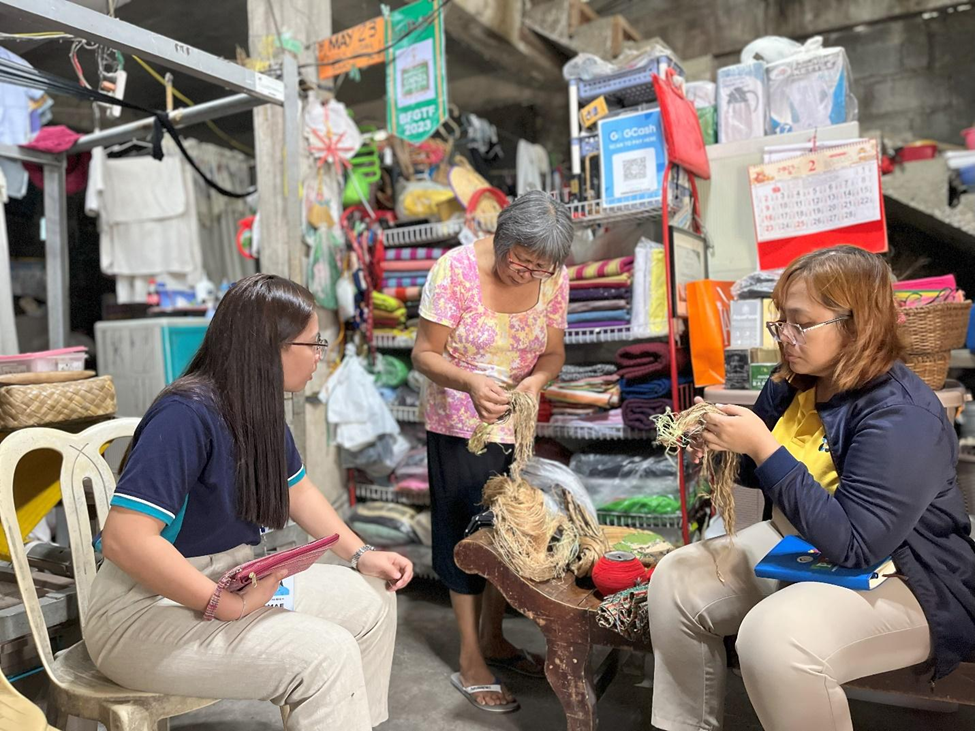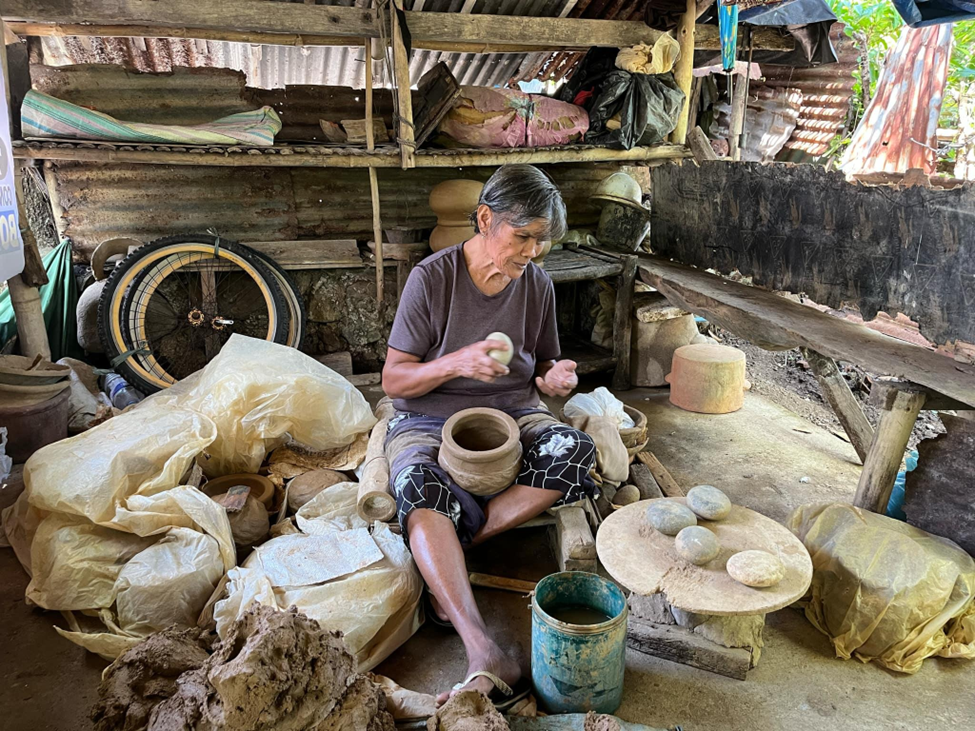The Department of Science and Technology Regional Office 5 (DOST-5) has successfully mapped out 64 local innovations across the Bicol region through the Grassroots Innovations for Inclusive Development (GRIND) Program.
Following the completion of SalikLakbay—a four-month community research journey to uncover local solutions—from February to May 2025, the DOST Bicol Region was able to empower marginalized communities by identifying, developing, and strengthening grassroots innovations.
Covering 17 localities across all six Bicol provinces, the mapping initiative showcased the depth of local ingenuity—drawing from indigenous knowledge, traditional practices, and community-driven technologies developed to address real-world needs.
The documentation process engaged directly with local innovators, including farmers, fisherfolk, women, youth, indigenous groups, and microentrepreneurs.
The 64 innovations were grouped into eight thematic categories namely Heirloom Recipes; Artisanal/Endangered Crafts; Ethnobotanicals; Innovations Addressing Health Hazards; Circular Economy; Agriculture; Livelihood; and others.
Camarines Sur has the highest number of innovations with 20, followed by Masbate with 12 and Camarines Norte with 11.
Moreover, Albay contributed 10, Sorsogon 6, and Catanduanes with 5.
Below is the list of innovations per category:
Heirloom Recipes
-Bëtë; Delicacy made from large land snails, used as an alternative protein.
-Inayunan; Soup of coconut juice, sardines, and leaves, passed down from times of hardship.
-Namu (Wild Yam); Toxic yam detoxified and processed into traditional snacks
-Tinuktok; Shrimp and coconut meat wrapped in leaves and cooked in coconut milk
-Bulok; Dish of coconut flowers with pork, fermented shrimp, and chili
-Puto Macapuno; Steamed rice cake filled with caramelized coconut meat
-Hinagom Polvoron; Roasted corn powder treats with sweeteners or fruit additions
-Latik; Coconut milk-based syrup for rice cakes and desserts
-Dawa Products; Traditional grain transformed into new snack varieties
Artisanal/Endangered Crafts
-Water Hyacinth Weaved Products; Handcrafted items from treated aquatic plant fibers
-Engineered Bamboo Designs; Structural and decorative crafts using modified bamboo
-Ngarawngaw Handicraft; Baskets and boxes made from coconut spikelets
-Traditional Pottery; Clay vessels handcrafted using traditional techniques
-String Art and Embroidery; Nail-and-thread artworks using local fibers and patterns
-Coconut Leaf Midrib Handicrafts; Handwoven items from coconut leaf midribs
-Nito Handicrafts; Vines woven into household goods through traditional methods
Ethnobotanicals
-Malawmaw Leaves (Sour Agent); Leaves used as a natural souring agent due to high oxalic acid content
-Herbal Medicine from Malagangaw Tree; Bark extract used traditionally for inflammation, infection, and pain relief
-Kulong Juice; Herbal drink made by boiling native plants for refreshment and wellness
-Massage Oil; Herbal oil blend with local leaves and aromatic additives for topical relief
-Formula 35; Therapeutic oil from 35 plant parts used for rashes, inflammation, and skin irritations.
-Multicure; Herbal tincture in distilled nipa liquor used for animal bites and minor infections.
-Laying; Dried banana leaves used in traditional relief practices for high blood pressure. -Pamug-gat; Decoction of 19 herbs for postpartum recovery and respiratory relief
Innovations Addressing Health Hazards
-Foot-operated Alcohol Dispenser (Bamboo); Hands-free bamboo dispenser that promotes hygiene and reduces contact-based transmission.
Circular Economy
-Inabëǵ (buhi weaving) with thread out of upcycled Polo shirt collar; Uses threads from old collars as low-cost weaving material
-Puru-nan; Tool for extracting thread from upcycled shirt collars
-Tora-tora; Recycled-metal vehicle for flood transport
-Modified Taro Leaves Shredder; enhances shredding of dried taro leaves
-Improvised Taro Leaves Sorting Machine; it sorts shredded taro leaves by size
-Improvised Manual Charcoal Briquette Cutter; hand tool for uniform briquette shaping
-Improvised Abaca Bobbin Winder; winds abaca fibers onto spools for weaving
-Surveillance Drone made from Repurposed Waste Materials; Recycled drone for monitoring and mapping
-Autonomous Boat made from Repurposed Waste Materials; sensor-equipped boat for coastal surveillance
-Hand-Held Briquette Molder for Carbonized/Uncarbonized; Portable tool for shaping charcoal briquettes
-Banana Cider Vinegar; Vinegar from surplus bananas to reduce food waste
-Fabricated Coco Pot Making Machine; Makes plant pots from coconut fiber
-Straw Bites; Edible, rice-based straws as plastic alternatives
-Improvised Woodcraft Fining Machine; Recycled sander for wood finishing
Agriculture
-Bilingan; A manually operated tool for efficiently hauling fishing nets
-Clay Pot Beehive; A dual-pot structure providing a waterproof hive for stingless bees
-Coconut Husk Crumble Cat Litter; Absorbent litter from coconut husks, compostable after use
-Batuan Jam; A sweet preserve made from a native sour fruit
-Batuan Puree; A ready-to-use souring agent from native frui
-Batuan Powder; A shelf-stable, powdered form of a sour fruit for cooking
-Batuan Ice Cream; A creamy dessert infused with the tang of native fruit
-Marine Bio-Structures using Bamboo and Guava Twigs; Floating devices that attract fish and aid marine sustainability
-Hinagom Ice Cream; Ice cream made from roasted corn for a nutty, local twist
Livelihood
-Water Hyacinth Charcoal Briquettes; Eco-briquettes from dried water hyacinth, coconut shell, and cornstarch
-Cosmos Soap; Moisturizing soap made from roadside-grown cosmos flowers
-Pancit Guilid; Firm flour noodles sold fresh or dried
-Rice Brew; Roasted rice drink in six flavors, coffee alternative
-Linangta Pili Pulp Chips; Chips made from soft-cooked, repurposed Pili pulp
-Rainbow Puto Seko; Colorful cassava or cornstarch cookies with real fruit flavo
-Rock en' Roll; Long-lasting kropek from grated, sun-dried cassava
-Soya Cookies; High-protein cookies made with ground soy
-Pasayan Ice Cream (Shrimp Sorbetes); Ice cream made with local shrimp
-Whisk Broom made of Tabun-ak; Prototype broom from local tabun-ak fibers
-Carmelado (Pastillas); Firm, sweet milk candy from carabao or cow’s milk
Others
-Atchara De Nata De Coco; Digestive-friendly atchara with nata de coco from local coconuts
-AKEA's Vegie Chips; Wild fern (pako) chips made by students using farmer-sourced leaves
-Modified Retort Lid with Vapor Pipe; Redesign for improved citronella oil distillation efficiency
-Modified Oil Condenser; Conical lid fix to reduce leakage from thermal expansion
-Modified Perforated Metal Basket; Improved steam flow in citronella distillation to prevent burning.
Following the mapping, DOST’s Provincial Science and Technology Offices (PSTOs) will conduct initial evaluation to identify priority innovations in their respective areas. These will then undergo regional evaluation by the Grassroots Innovation Technical Evaluation Committee (GITEC).
Selected innovations will receive tailored science and technology (S&T) interventions, which may include research and development support; product enhancement; capacity building; packaging and labeling assistance; intellectual property registration; and linkages to funding and market opportunities.
Through the GRIND Program, DOST-Bicol highlights the vital role of community innovators as co-creators of development solutions. By bridging traditional knowledge with scientific resources, the program fosters inclusive, place-based innovation, particularly in underserved and marginalized communities.
As the program moves into its next phase, DOST-Bicol remains committed to walking alongside these communities—not just to document what exists, but to help bring grassroots innovations into the spotlight.
The GRIND Program is among the many initiatives of the Department of Science and Technology (DOST) aimed at providing science-based, innovative, and inclusive solutions across four strategic pillars: human well-being, wealth creation, wealth protection, and sustainability. These pillars embody the mantra OneDOST4U: Solutions, Opportunities for All. For more information, visit www.dost.gov.ph. (By Angela Zamudio and Jay Ray Masayda, DOST-Bicol)

(From left to right): Kristha Mae Evia (PTA II), Mercedes Ibarlin (Local Innovator), and Maria Regina G. Yabillo (SRS II) engage in a discussion as Ms. Ibarlin demonstrates her water hyacinth fiber weaving craft during the GRIND Saliklakbay held in Buhi, Camarines Sur on February 11, 2025.

Ms. Elsa Consuegra of Barangay Putsan, Tiwi, Albay showcases her traditional pottery craft during the GRIND Saliklakbay held on March 24, 2025